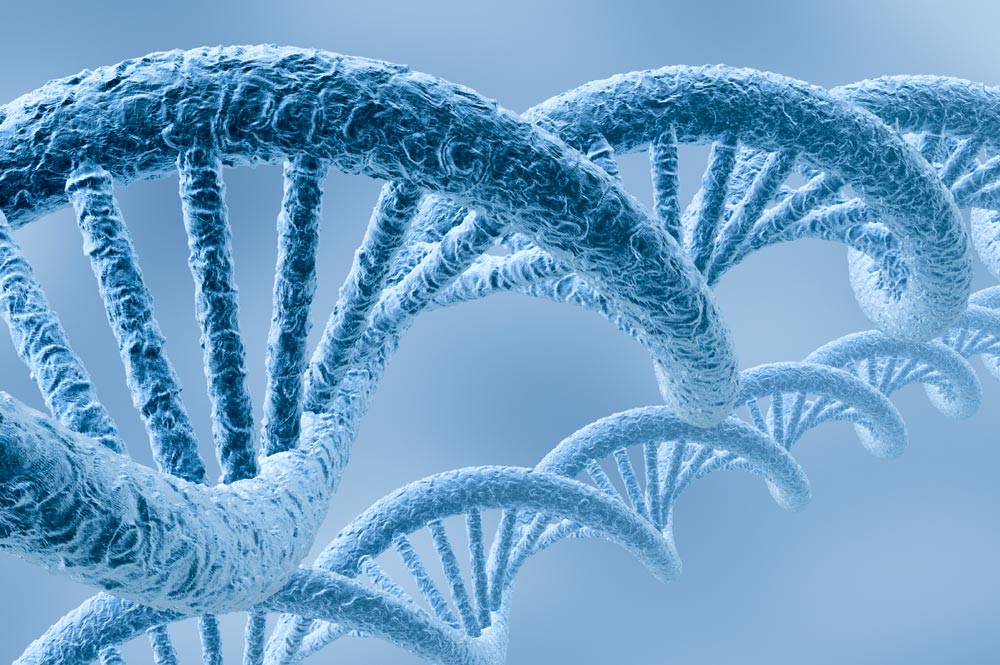
About Pathogenica
Pathogenica, based in Cambridge, MA, was founded in 2009 to pioneer commercial applications of pathogen sequencing. Pathogenica applies next-generation DNA sequencing technology to meet the clinical demand for rapid multiplex identification of pathogens, drug resistance genes and toxins in patient samples. The founding scientific advisory board (SAB) is comprised of distinguished scientists in the field, including George Church, Harvard Medical School, Ronald Davis, Stanford University, W.Ian Lipkin, Columbia University, Andrew Onderdonk, Harvard Medical School and Kun Zhang, University of California.
Pathogenica’s high throughput pathogen detection system is expected to deliver rapid and highly sensitive identification of a wide variety of pathogens from a patient sample, at a fraction of the cost of existing assays.
Pathogenica, Inc. is a privately held company, founded in July 2009 in Cambridge, Massachusetts.
Pathogenica, based in Cambridge, MA, was founded in 2009 to pioneer commercial applications of pathogen sequencing. Pathogenica applies next-generation DNA sequencing technology to meet the clinical demand for rapid multiplex identification of pathogens, drug resistance genes and toxins in patient samples. The founding scientific advisory board (SAB) is comprised of distinguished scientists in the field, including George Church, Harvard Medical School, Ronald Davis, Stanford University, W.Ian Lipkin, Columbia University, Andrew Onderdonk, Harvard Medical School and Kun Zhang, University of California.
Pathogenica’s high throughput pathogen detection system is expected to deliver rapid and highly sensitive identification of a wide variety of pathogens from a patient sample, at a fraction of the cost of existing assays.
Pathogenica, Inc. is a privately held company, founded in July 2009 in Cambridge, Massachusetts.
Mission
Molecular testing for infectious agents has revolutionized diagnosis of diseases such as HIV and tuberculosis, but current assays usually only target a single pathogen at a time, are expensive, error-prone and time-consuming to perform. Bacterial pathogen identification is particularly difficult, as existing culture based assays take 4-7 days to obtain final results, and can often miss the presence of the key pathogens.
Pathogenica applies next-generation DNA sequencing technology to meet the pressing diagnostic demand for rapid multiplex identification of pathogens, drug resistance genes and toxins in multiple patient samples.
Pathogenica's novel detection system aims to reach the holy grail of infectious disease diagnosis, by providing high-throughput, ultra-low cost assays with unparalleled sensitivity and specificity.
Molecular testing for infectious agents has revolutionized diagnosis of diseases such as HIV and tuberculosis, but current assays usually only target a single pathogen at a time, are expensive, error-prone and time-consuming to perform. Bacterial pathogen identification is particularly difficult, as existing culture based assays take 4-7 days to obtain final results, and can often miss the presence of the key pathogens.
Pathogenica applies next-generation DNA sequencing technology to meet the pressing diagnostic demand for rapid multiplex identification of pathogens, drug resistance genes and toxins in multiple patient samples.
Pathogenica's novel detection system aims to reach the holy grail of infectious disease diagnosis, by providing high-throughput, ultra-low cost assays with unparalleled sensitivity and specificity.
Our Team
-
Yemi Adesokan, Ph.D.
Co-Founder, CEO
Yemi Adesokan is a scientist and entrepreneur with several years experience in the development and optimization of multiplex capture and high throughput genome sequencing technologies. As a postdoctoral fellow at Harvard Medical School, he pioneered the development and implementation of the BioweatherMap project, an initiative aimed towards the collection and use of real-time assays to track and limit viral outbreaks and antibiotic resistance in the developing world. Yemi also has extensive experience as an industry consultant providing strategic advisory services to Fortune 500 life science companies. Yemi holds a BS in Biology from the University of Houston and a PhD in Theoretical Chemistry from the University of California, Irvine. -
Graeme Doran, Ph.D.
Chief Scientific Officer
Graeme Doran has several years of experience identifying novel nucleic acid species by high throughput sequencing. He has worked as a postdoctoral scientist at the David H. Koch Center for Integrative Cancer Research at MIT, and at the Department of Pathology, Harvard Medical School, where his projects have focused on non-coding RNA biology. Graeme has contributed book chapters and multiple peer reviewed publications in the fields of RNAi and human genetics, and invited presentations at international conferences. He currently serves as associate editor for the Journal of RNAi and Gene Silencing, and the Journal of Molecular and Genetic Medicine.
Graeme received a first class undergraduate degree from the University of Oxford, UK and completed his PhD training in the Department of Physiology at Oxford, studying the genetic epidemiology and molecular biology of human neurological disorders. -
Bill Cook
Vice President Regulatory Affairs
Bill Cook has over 30 years experience developing strategies and implementing business development initiatives with diagnostic companies. Bill was Vice President Strategy and Business Development for the global molecular diagnostics (MDx) program at Affymetrix (AFFX), and for Applied Imaging Corp. In senior management positions at diaDexus, Inc. he supported a highly successful launch of the PLAC® branded test for assessing cardiovascular disease.
Prior to this, Bill held management positions with Chiron, Ciba Corning, Shell Oil’s Triton Biosciences and Beckman Coulter. At Chiron he took responsibility for worldwide market development, technology assessment, strategic alliances and new product launches and commercialization, and built a $40m global business in oncology diagnostics.
Bill has been an invited speaker at a variety of healthcare groups and acted as an industry consultant for clients including Cepheid, Cortex, Diagnocure, GlycoTech, and Genentech.
Bill holds an MBA in International Marketing from National University, San Diego, and a BS in Microbiology from California State University, San Diego and is a graduate of the Financial Management Program at Columbia University, the Medical Marketing Program at Columbia University and the Medical Marketing Program at the University of California, Los Angeles. -
Sabrina R. Haas, MD
Director, Medical Affairs
Sabrina Haas is an Infectious Disease Specialist and serves as the Director of the Antimicrobial Stewardship Program at Beverly Hospital in Beverly MA. Sabrina trained at Columbia University Medical Center in New York for her Infectious Disease Fellowship where her research focused on fungal infections in transplant recipients, HIV and transplantation, and atypical mycobacterial infections. After her fellowship program, she worked for the New York City Department of Health Tuberculosis Control where she piloted a project on TB co-infection with hepatitis. She earned her BA degree in Human Biology and MD degree at the University of Kansas. She completed her Internal Medicine Residency as Chief Resident at Lahey Clinic in Burlington, MA. -
John Boyce
Business Development
John Boyce is co-founder of Delphi Bio Inc a biotech consulting firm . He has more than 12 years of business development experience in the life sciences industry. He has been responsible for putting in place, in a number of companies the sales, marketing, and business development infrastructure. Most recently Mr. Boyce served as Head of Business Development for Helicos BioSciences. Previously, he was Senior Director of Commercial Development for Parallele Biosciences, Inc. Prior to that Mr. Boyce served as Director, United States Sales and Marketing at Sequenom, Inc. -
Jessica Tonani
Business Development
Ms. Tonani is a co-founder of Delphi Bio. She is a sales and marketing professional with over 10 years experience in life sciences including senior positions at Affymetrix, Inc. and Sequenom, Inc. She spent several years at Affymetrix, most recently as associate director of DNA product marketing. Ms. Tonani was a Howard Hughes fellow with an MS in immunology and a BS in microbiology.
Our Scientific Advisory Board
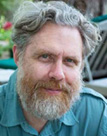
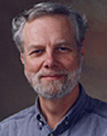
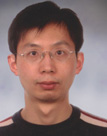
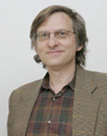
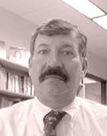

George M. Church, Ph.D.
Co-Founder and Chief Scientific Advisor
George Church is Professor of Genetics at Harvard Medical School and Director of the Center for Computational Genetics, and brings to Pathogenica over 25 years experience in the invention and commercialization of sequencing technology. In 1984, with Walter Gilbert, he developed the first direct genomic sequencing method and helped initiate the Human Genome Project while a Research Scientist at newly-formed Biogen Inc., and in 2005, Dr. Church initiated the Personal Genome Project to catalyze the expansion of genomics into human healthcare. He has served in advisory roles for 12 journals (including Nature Molecular Systems Biology), 5 granting agencies and 24 biotech companies (e.g. 23andme & recently founding Codon Devices, Knome and LS9). He earned B.A. degees in Zoology and Chemistry from Duke University and a Ph.D. in Biochemistry and Molecular Biology from Harvard University. His current research focuses on integrating biosystems-modeling with personal genomics & synthetic biology.
Co-Founder and Chief Scientific Advisor
George Church is Professor of Genetics at Harvard Medical School and Director of the Center for Computational Genetics, and brings to Pathogenica over 25 years experience in the invention and commercialization of sequencing technology. In 1984, with Walter Gilbert, he developed the first direct genomic sequencing method and helped initiate the Human Genome Project while a Research Scientist at newly-formed Biogen Inc., and in 2005, Dr. Church initiated the Personal Genome Project to catalyze the expansion of genomics into human healthcare. He has served in advisory roles for 12 journals (including Nature Molecular Systems Biology), 5 granting agencies and 24 biotech companies (e.g. 23andme & recently founding Codon Devices, Knome and LS9). He earned B.A. degees in Zoology and Chemistry from Duke University and a Ph.D. in Biochemistry and Molecular Biology from Harvard University. His current research focuses on integrating biosystems-modeling with personal genomics & synthetic biology.

Ronald W. Davis, Ph.D.
Ron Davis is the director of the Stanford Genome Technology Center, a professor of Biochemistry and Genetics at the Stanford University School of Medicine and a co-founder of ParAllele. He is a leader in the development of biotechnology, and pioneer in the area of genomics and high throughput biochemical techniques. In addition to his work in academia, Professor Davis has been involved in the spin-off of multiple start-up companies in the area of genomics from his laboratory at Stanford. Dr. Davis earned his BS degree in chemistry, physics, mathematics, and botany from Eastern Illinois University and his PhD in chemistry from the California Institute of Technology. Davis is a member of the National Academy of Sciences. He has served on the National Institutes of Health (NIH) Genome Research Review Committee, and as chairman of the World Health Organization Strategic Research Steering Committee.
Ron Davis is the director of the Stanford Genome Technology Center, a professor of Biochemistry and Genetics at the Stanford University School of Medicine and a co-founder of ParAllele. He is a leader in the development of biotechnology, and pioneer in the area of genomics and high throughput biochemical techniques. In addition to his work in academia, Professor Davis has been involved in the spin-off of multiple start-up companies in the area of genomics from his laboratory at Stanford. Dr. Davis earned his BS degree in chemistry, physics, mathematics, and botany from Eastern Illinois University and his PhD in chemistry from the California Institute of Technology. Davis is a member of the National Academy of Sciences. He has served on the National Institutes of Health (NIH) Genome Research Review Committee, and as chairman of the World Health Organization Strategic Research Steering Committee.

Kun Zhang, Ph.D.
Kun Zhang is an assistant professor of Bioengineering at the Jacobs School of Engineering at the University of California, San Diego. He received his B.S. in Biophysics and M.S. in Neuroscience from Fudan University and performed his doctoral work in the Program of Human and Molecular Genetics at The University of Texas-Houston Health Science Center’s Graduate School of Biomedical Sciences. Prior to joining UCSD, he was a post-doctoral fellow in the lab of Dr. George Church, Professor of Genetics at Harvard Medical School, Director of the Center for Computational Genetics and co-founder of the Human Genome Project. Zhang's research focuses on genomic technologies, including single-chromosome manipulation and sequencing, development and fabrication of devices for high-throughput genomics assays stem cell biology, microbiome, personal genomes, and common human disorders.
Kun Zhang is an assistant professor of Bioengineering at the Jacobs School of Engineering at the University of California, San Diego. He received his B.S. in Biophysics and M.S. in Neuroscience from Fudan University and performed his doctoral work in the Program of Human and Molecular Genetics at The University of Texas-Houston Health Science Center’s Graduate School of Biomedical Sciences. Prior to joining UCSD, he was a post-doctoral fellow in the lab of Dr. George Church, Professor of Genetics at Harvard Medical School, Director of the Center for Computational Genetics and co-founder of the Human Genome Project. Zhang's research focuses on genomic technologies, including single-chromosome manipulation and sequencing, development and fabrication of devices for high-throughput genomics assays stem cell biology, microbiome, personal genomes, and common human disorders.

W. Ian Lipkin, M.D.
W. Ian Lipkin, is the John Snow Professor of Epidemiology, and Professor of Neurology and Pathology at Columbia University; Scientific Director of the Northeast Biodefense Center; Principal Investigator of the 100,000 child Autism Birth Cohort; and member of the WHO Laboratory Surveillance Network. In 1989 Lipkin was the first to identify a microbe (Bornavirus) using solely molecular tools.
Lipkin led the team that identified West Nile virus in New York in 1999, and in April 2003 he established an assay for SARS infection, hand carried 10,000 test kits to Beijing at the height of the outbreak, and was named Special Advisor to China for Research and International Cooperation in Infectious Diseases. Dr. Lipkin received his BA from Sarah Lawrence College, MD from Rush Medical College, training at the Queen Square Institute of Neurology; Internship in Medicine at the University of Pittsburgh, Residency in Medicine at the University of Washington, Residency in Neurology at the University of California San Francisco, and Fellowship at The Scripps Research Institute in La Jolla. In 1990 he joined the University of California Irvine as an Assistant Professor of Neurology, Anatomy and Neurobiology, and Microbiology and Molecular Genetics. He advanced to Professor before moving to Columbia University Mailman School of Public Health in 2002. Dr. Lipkin is board certified by the American Board of Internal Medicine (1981) and the American Board of Neurology and Psychiatry (1986).
W. Ian Lipkin, is the John Snow Professor of Epidemiology, and Professor of Neurology and Pathology at Columbia University; Scientific Director of the Northeast Biodefense Center; Principal Investigator of the 100,000 child Autism Birth Cohort; and member of the WHO Laboratory Surveillance Network. In 1989 Lipkin was the first to identify a microbe (Bornavirus) using solely molecular tools.
Lipkin led the team that identified West Nile virus in New York in 1999, and in April 2003 he established an assay for SARS infection, hand carried 10,000 test kits to Beijing at the height of the outbreak, and was named Special Advisor to China for Research and International Cooperation in Infectious Diseases. Dr. Lipkin received his BA from Sarah Lawrence College, MD from Rush Medical College, training at the Queen Square Institute of Neurology; Internship in Medicine at the University of Pittsburgh, Residency in Medicine at the University of Washington, Residency in Neurology at the University of California San Francisco, and Fellowship at The Scripps Research Institute in La Jolla. In 1990 he joined the University of California Irvine as an Assistant Professor of Neurology, Anatomy and Neurobiology, and Microbiology and Molecular Genetics. He advanced to Professor before moving to Columbia University Mailman School of Public Health in 2002. Dr. Lipkin is board certified by the American Board of Internal Medicine (1981) and the American Board of Neurology and Psychiatry (1986).

Andrew B. Onderdonk, Ph.D.
Dr. Onderdonk has been a clinical microbiologist for over 30 years. He currently directs the clinical microbiology laboratory at the Brigham and Women's Hospital, serves as the principal investigator for the BSL-3 core facility at Harvard Medical School and is a Professor of Pathology at Harvard Medical School.
In addition to his administrative responsibilities, he is an active research investigator in the area of infectious diseases. He teaches at both Harvard Medical School and is part of the teaching faculty at the Brigham and Women's Hospital. He was the former Editor in Chief for the Journal of Clinical Microbiology, the most widely read journal for clinical microbiologists in the world. Dr. Onderdonk serves as the Chair for the Committee on Microbiologic Safety for Harvard University and affiliated institutions.
Dr. Onderdonk has been a clinical microbiologist for over 30 years. He currently directs the clinical microbiology laboratory at the Brigham and Women's Hospital, serves as the principal investigator for the BSL-3 core facility at Harvard Medical School and is a Professor of Pathology at Harvard Medical School.
In addition to his administrative responsibilities, he is an active research investigator in the area of infectious diseases. He teaches at both Harvard Medical School and is part of the teaching faculty at the Brigham and Women's Hospital. He was the former Editor in Chief for the Journal of Clinical Microbiology, the most widely read journal for clinical microbiologists in the world. Dr. Onderdonk serves as the Chair for the Committee on Microbiologic Safety for Harvard University and affiliated institutions.
Press Releases
-
08 June 2010
Microbe hunter joins Pathogenica board
World-renowned expert in viral infection joins forces with medical diagnostics company to apply next generation DNA sequencing to clinical pathogen discovery. -
05 June 2010
George Church and Ron Davis join Pathogenica for next generation pathogen detection
Medical diagnostics company adds proven DNA sequencing expertise to Scientific Advisory Board with appointment of renowned serial innovators.


